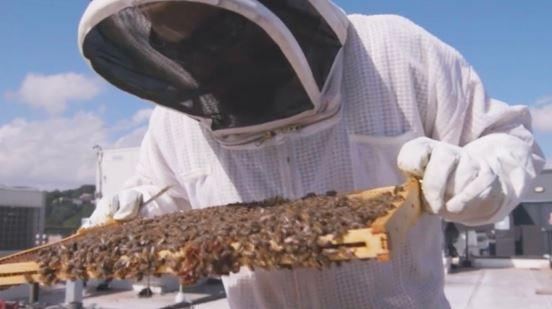A Nature-Based Approach to Climate Change

The Wellness Economy is one of the biggest industries today as many are looking for solutions to manage health and well-being. Pollution, manufactured goods, and other pressures are among some of the factors driving people to consider simpler, more natural options. Those same stresses are also impacting the health of the planet – so why not invest in the same type of care for the environment?
Nature-based solutions for climate change look at how we can use the natural environment, such as green spaces, to help reduce greenhouse gas emissions and manage the impacts of extreme weather events. This approach not only preserves the health of the environment, but it can also have positive social and economic benefits.
Green spaces are where people can go to play, relax and connect with their community. They also provide free services such as purifying the air that we breathe, flood mitigation and absorbing carbon from the atmosphere. By using what already exists in nature, we can reduce the need to invest money in new structures, like those made from concrete and steel, to do the same thing. Concrete can’t absorb large amounts of water, so during intense rainfall the rush of water overwhelms storm drains, which can cause intense flooding. Gardens, meadows, and trees on the other hand can soak up water like a sponge.
In fall 2018, over 10,600 community and TD volunteers, local organizations and Indigenous communities helped plant more than 48,000 native trees in communities across Canada and the United States through TD Tree Days. Since the program started in 2010, over 390,000 trees have been planted, helping to asborb 890.1 tons of C02. This number will only grow over time, because as trees mature they absorb even more carbon from the atmosphere. Since 1990, we have helped plant nearly 1 million trees through the TD Friends of the Environment Foundation and TD Tree Days. Help us reach our new goal of planting another million trees by 2030.
In New York City, the non-profit organization Friends of the High Line manages a 2.33-kilometer linear park, filled with greenery and year-round programming for visitors. As part of the programming, we are helping to educate people on the importance of pollinators, like bees, for maintaining healthy ecosystems and food production. In 2018, through the TD High Line Honey Initiative we helped install bee hives on rooftops surrounding the park, which produced 120 pounds of local honey the first year.
For more stories like this, read TD's 2018 report on The Ready Commitment.

